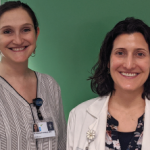As with rheumatology care in general, the current demand for pediatric rheumatologists is greater than the supply of providers available. That imbalance is expected to increase significantly by 2030 unless action is taken, according to a new workforce study published in Arthritis Care & Research.1 The lack of pediatric providers is a serious problem that…








